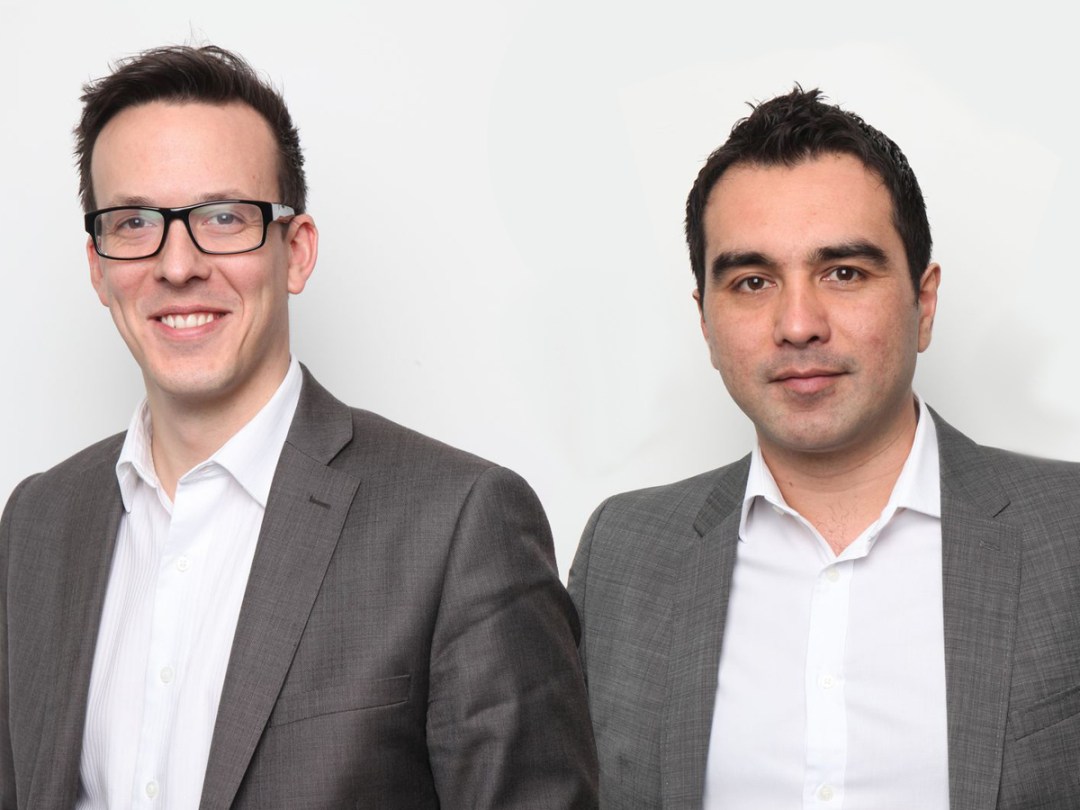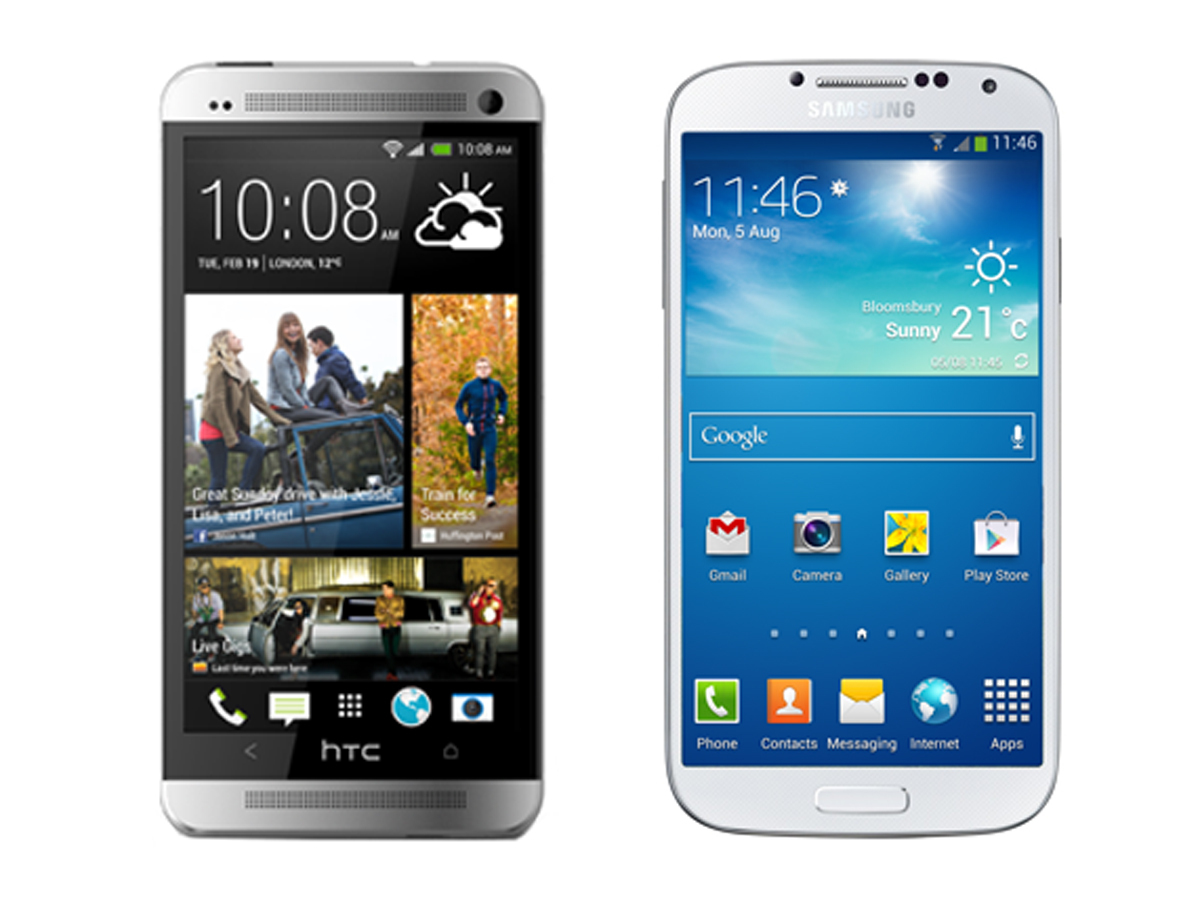Meet Kazam, the new UK smartphone manufacturer taking aim at the big guns
Top-notch Android smartphones for less cash? "We’re not spending money on sponsoring David Beckham or the Olympics."

“Do I want to buy an HTC for a Zoe moment, or a Samsung for eyeball scrolling? Do I want to pay a premium for these features?”
Michael Coombes, CEO of UK smartphone start-up Kazam, is banking on the answer being “No.”
Chances are you’ve no idea who or what Kazam, or indeed a Kazam device, is. The people behind Kazam are Coombes and co-founder/CMO James Atkins, ex-senior employees of HTC UK & Ireland who quit the firm earlier this year to launch a new venture. This new venture, the ‘what’ part, is a UK-based smartphone brand that announced its existence in May. Kazam has plans to launch a comprehensive range of Android-based devices – spanning my-first-smartphones to high-end phablets – into the European market in September.
Since May, the company has been busy opening up satellite offices in Spain, Denmark, Poland, Germany and France. Its hopes are sky-high: Coombes aims to have Kazam in Europe’s top five smartphone manufacturers within three years, and its target isn’t the likes of Alcatel and Sagem – it’s the big guns, such as Samsung and Apple.
“If you want the core features that those devices bring at a very competitive price point,” says Coombes, “and with a design that’s still really sexy, then I’d like to think people would consider a Kazam device.”
To call this a tall order would be a ridiculous understatement. So, how?
Just as much, for less
One strand of Kazam’s mobile strategy is faintly reminiscent of Apple’s approach to features: if something’s not going to be used, leave it out. The difference is that it’s applying this to Android smartphones, in which competition is traditionally about one-upmanship: huge brands slugging it out with superior internals, sleeker designs and ever more inventive added-value features.
Kazam thinks that it has devices that go toe-to-toe with Apple, Samsung and HTC on hardware, design and reliability, but it isn’t even trying to compete with the added-value stuff. Developing the likes of Samsung’s Smart Scroll and HTC’s Zoe is expensive and – so goes the theory – most punters would rather have good gadgets for less cash.
"The brands that define themselves by technology are in this arms race to constantly differentiate. I think that can sometimes lead to developing tech to be different rather than because it’s necessarily the right thing to do," says Atkins.
Coombes agrees. "We’re not worried about having 20,000 R&D engineers creating features we don’t really want. We’re seeing tech-savvy customers saying, ‘We love HTC but we don’t need Sense, we want native Android; we love our Samsung device but we don’t want TouchWiz, we want native Android.'”
Every Kazam device will run the sort of unadorned Android you get on a Nexus device, or an AOSP version of the HTC One or Samsung Galaxy S4. But, says Kazam, they won’t carry the high prices of those devices, as the company R&D costs are lower than those of competitors. All of Kazam’s R&D is done by NF Technology Limited, a Chinese smartphone developer, under scrutiny from Head of Products Daniel Boff who recently joined Kazam from WDS.
And there’s another way that Kazam’s keeping costs down, says Coombes: "We’re not spending money on sponsoring David Beckham or the Olympics."
Risky business

There’s good reason that Samsung sponsors the Olympics or HTC ropes in Robert Downey Jr. for a campaign. The smartphone market is saturated. BlackBerry is teetering on the brink, and even HTC is struggling. Visibility is key, and without the marketing budget of a megacorp, it’s going to be a huge challenge for Kazam to get itself seen.
And while there’s no doubt that Android offers as good a mobile experience as any on the market (well, Sense 5 is pretty damn good too), with a conspicuous lack of Kazam hardware or pricing, it’s impossible to judge whether its handsets will be compelling enough to make people think twice before picking up an HTC or an iPhone.
Indeed, with devices such as the Nexus 4 already offering unadorned Android on outstanding hardware for mid-range money, Kazam will have its work cut out.
Atkins tells us, "It’s about more than just the handset," and hints at a wider strategy that hinges on top-notch background services. He also thinks there’s much to be made of the company’s local approach: when was the last time you bought a smartphone from a British manufacturer, or even a European one? Atkins wouldn’t be drawn on specifics in either case, but the idea of a home-grown smartphone is certainly an appealing one (check out how nuts the US went over the Moto X).
Coombes is similarly bullish that Kazam’s no-nonsense approach can achieve great things in a short time. “We’re not trying to do anything other than the basics: great-looking devices with features, without compromising on quality. I’m 100 per cent confident that Kazam will be a big player in a few years’ time; when you mention Kazam everyone will know who we are.”
A good start would be a few killer devices – it’s going to be interesting to see what September brings.



